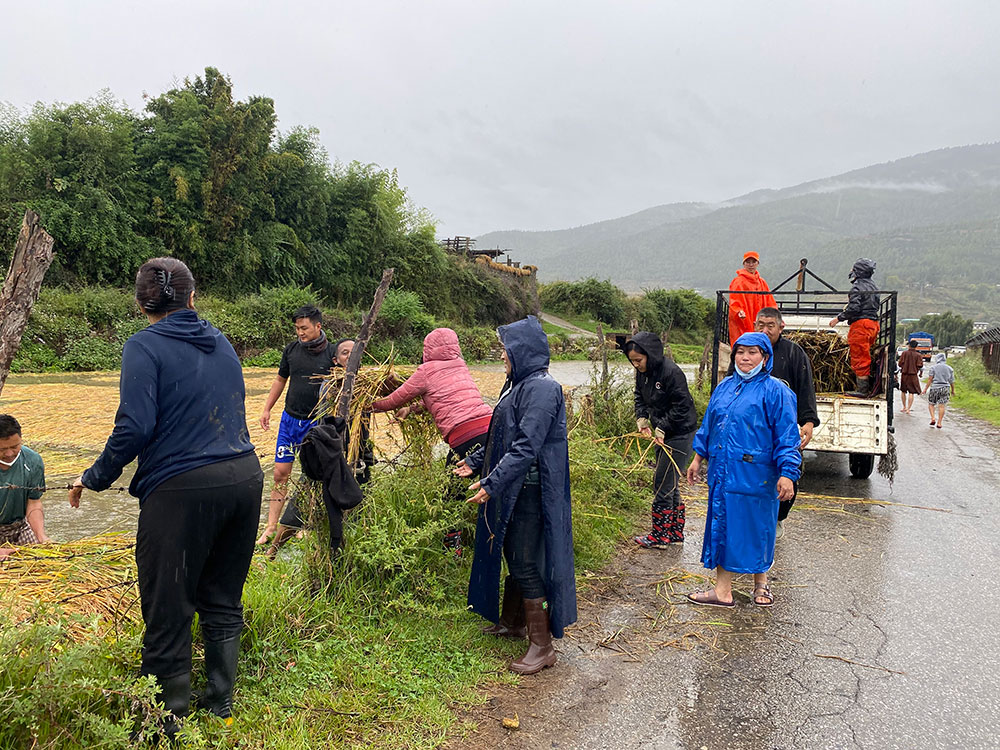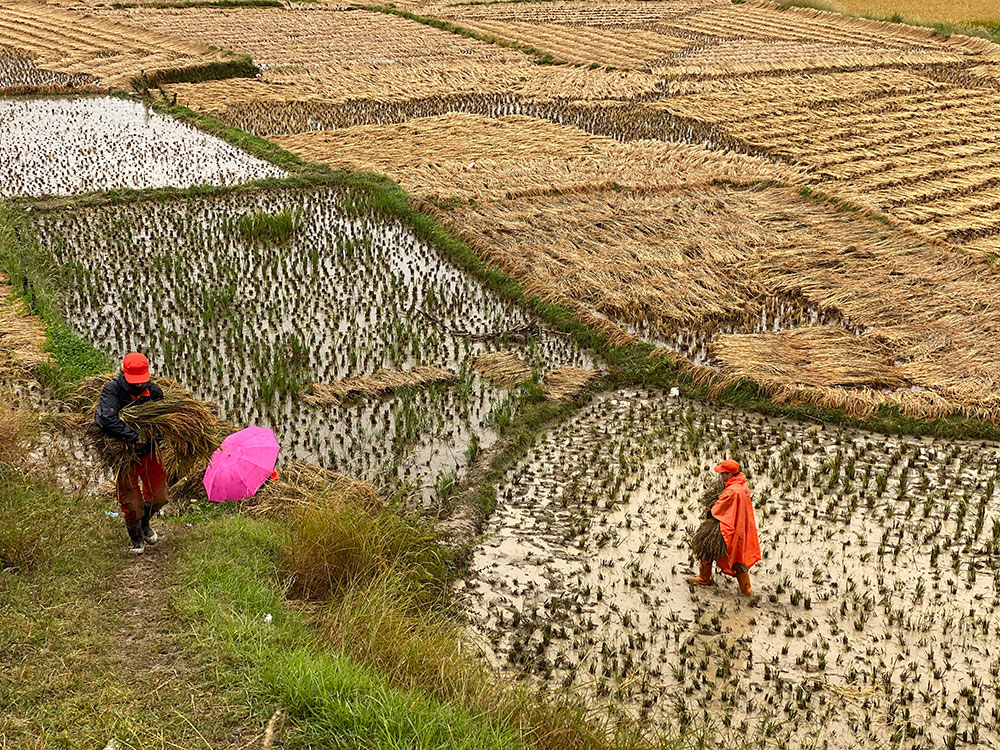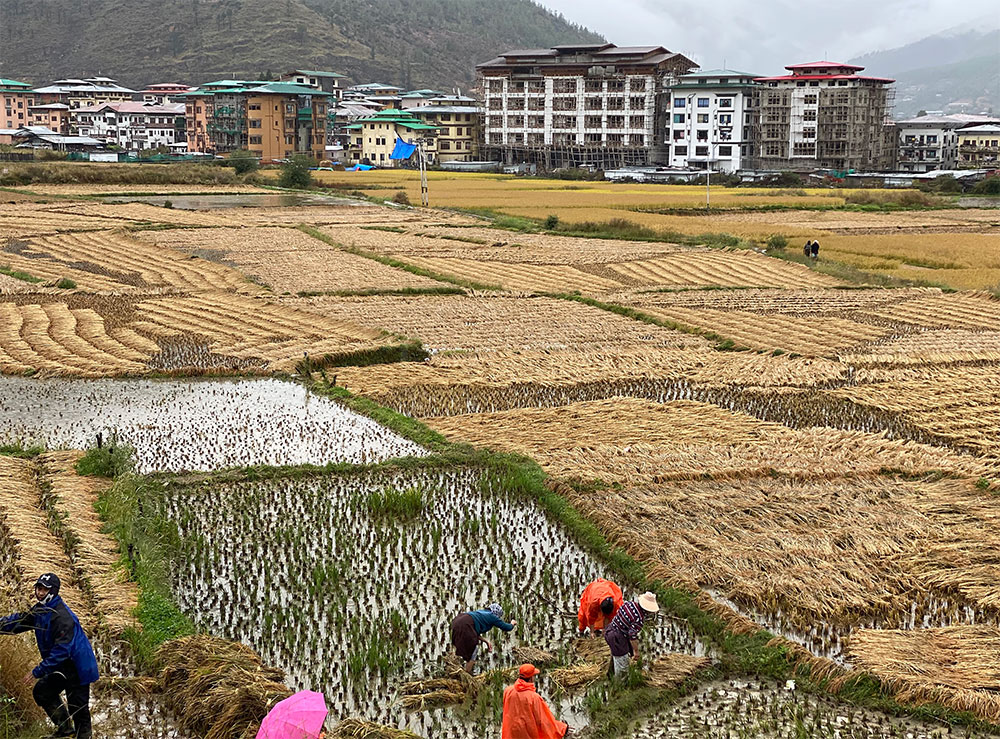793 acres of paddy fields were affected
Phub Dem | Paro
The continuous rainfall in the past three days damaged about 793 acres of paddy fields damaging an estimated 1,945 metric tonnes of rice production in Paro.
According to a crop damage report compiled by Paro dzongkhag officials, the rainfall affected about 907 households from 10 gewogs in the dzongkhag known for the vast flatland and rice production. Most of the farmers affected were in the Doteng, Lungyni and Tsento gewogs, according to the preliminary crop damage report.
Almost 70 percent of rice growers in Paro already cut their paddy last week and kept it in their fields to dry. They didn’t expect the usual drizzle to turn into continuous rainfall destroying their harvest within three days.
As the rainfall continued, desperate farmers sought help from gewogs and dzongkhags.
Starting at 8am yesterday, dzongkhag and court officials, desuups, officials from Farm Machinery Corporation of Bhutan and army personnel from the Shaba Commando Wing were deployed to help farmers.
Volunteers were seen knee-deep in flooded fields, trying to save paddy from being washed away and transporting them to dry places.

A resident of Chang-Mandrel, Dechen Lham, said if it wasn’t for the timely help, she could lose her rice paddy to surface runoff.
The rice plants were floating over the rice field.Quality of rice, however, would be affected, say farmers.
Dechen Lham stays alone in Paro and has no one to help her. She said she spent two sleepless nights constantly checking the rice field below her house. “I failed to divert the water due to continuous rainfall and water overflowing from the irrigation canal.”
Another farmer from Geptay, Dawa, sought help from the volunteers. He said that three days (Yue-Ngen zha sum) after 21 days of blessed rainy day (thruebab) was considered critical as natural disasters usually occur during this period.
In the past, he said that people were extra cautious about the days and they usually harvested paddy after the third day. “But people do not have the patience to wait anymore.”

He also said that tradition and cultural practices associated with paddy harvest had vanished. “Locals should wait for a good day to harvest the paddy. There are no such practices now.”
With no signs of the rain stopping, he decided to save the cut paddy. “Desuups were of great help,” he said.
Meanwhile, some netizens shared that the untimely rainfall and disaster during the harvest season was due to contamination and disturbances at sacred sites such as Drake Pangtsho and Nubtshonapata.
Paro faced a similar disaster six years ago. Locals recall losing their harvest to surface runoffs.
Edited By Jigme Wangchuk


